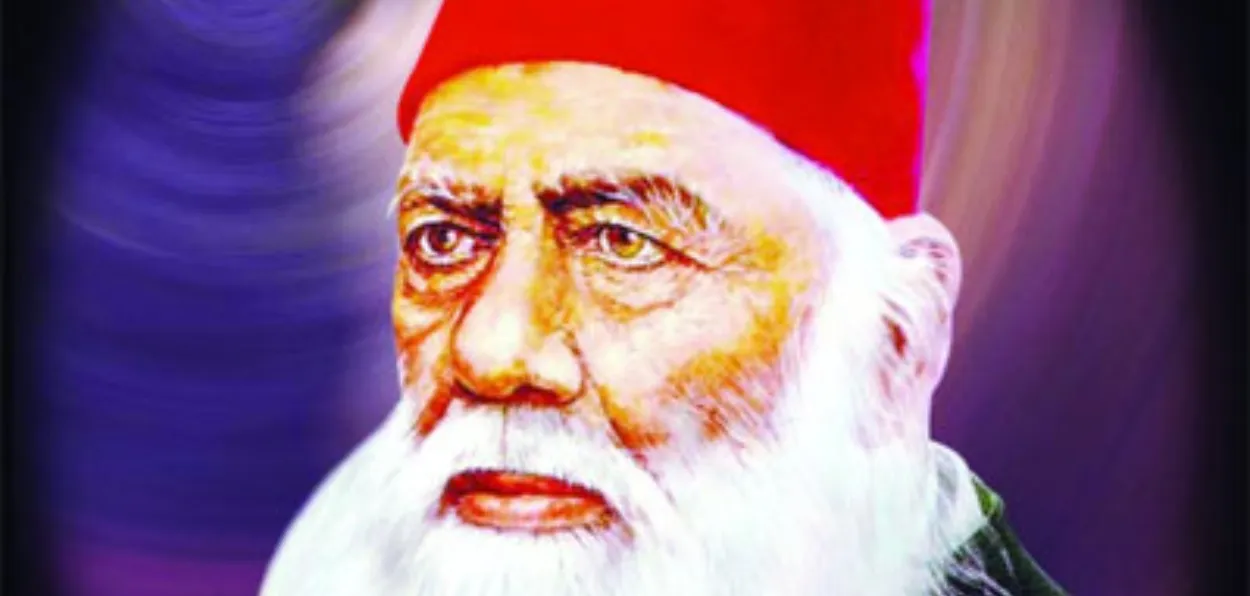
Saquib Salim
Sir Syed Ahmad Khan, the founder of Aligarh Muslim University (AMU), is often criticized as a proponent of the two-nation theory, which resulted in the formation of Pakistan.
Dr. Shan Mohammad sums up the problem, “The Pakistani historians out of their admiration for Sir Syed hail him as "the first Pakistani" while the Indian historians out of their bias call him the father of two-nation theory and thus the forerunner of the idea of Pakistan.”
As it’s said in the Hindi language, there is no smoke without a fire, the fire, in this case, was an innocuous Urdu word Qaum which in its English version creates a misleading impression. Platts's dictionary defines qaum as “A people, nation; a tribe, race, family; sect, caste.” As Sir Syed’s several speeches in Urdu were published by The Pioneer newspaper from Varanasi in English, qaum became ‘nation’.
Professor Frances W. Pritchett points out a problem in this, “In virtually every place where the Pioneer's translation says "nation," the Urdu word is actually "qaum," or "community."
So, the fire was ignited by Pioneer in the 19th century. It created a narrative that Sir Syed had classified Hindus and Muslims of India as two separate ‘nations’.
Professor Shafey Kidwai in his book on Sir Syed notes, “Mazhar Mehdi (2002) claims that Sir Syed describes both the Muslims and the Hindus as a Qaum (nation) several times. However, occasionally he uses the term to mark the distinction between two communities.”
The idea that Hindus and Muslims both constitute this country did not miss Sir Syed. On 27 January 1884, he said at Gurdaspur. “Oh Hindus and Mussalmans, do you inhabit any country other than India? Do you not both live here on the same land and are you not buried in this land or cremated on the ghats of this land? You live here and die here. Therefore, remember that Hindu and Mussalman are words of religious significance otherwise Hindus, Mussalmans, and Christians who live in this country constitute one nation (Cheers). When all these groups are called one nation, then they should be one in the service of the country, which is the country of all.”
In 1883 at Patna, Sir Syed said, “We breathe the air of India and drink the holy water of Ganga and Jumna, eat the produce of the Indian soil. We share a lot in both living and dying; our figures resemble each other. The Muslims followed several customs of the Hindus, and the Hindus adopted several habits of the Muslims. Being the residents of the same land, we (the Hindus and the Muslims) are one nation.”
Javed Ashraf, who had translated works of Sir Syed, writes, “Sir Syed often used this Urdu term (Qaum) to mean diversity of entities like a community, a caste and a race or even a lowly profession. However, when he describes Hindus and Muslims as ‘those Qawmein (communities) that consider the practices of the past as perfect and it continues to follow them while British, French and German are such Qawamein (plural of Quam) who always progress. It becomes obvious that the connotations of the term “Qaum” are identical to the English term “nation”’.
It seems the confusion is not limited to the translation of Pioneer but somewhere Sir Syed had also used the term qaum in different contexts including ‘nation’. Pritchett points out, “The problem is that Sir Sayyid's usage shifts from one sense to another in a very slippery way. “
Shan Mohammad believes, “The words nation and community mean the same to Sir Syed and he has invariably used the word nations where he should have used the word communities. It goes to prove that wherever he has used the word nation he means community in the technical sense of the term. He was not conversant with the nineteenth century western connotation of the word nation and whatever he has said should not be confused with it.”
In Lahore, Sir Syed reportedly said, "I have used the word nation several times in this Anjuman. By this, I do not mean Muslims only. In my opinion, all men are one and I do not like religion, community or group to be identified with a nation .... I wish that all men irrespective of their religion and community may unite together for the commonwealth. Our religions are undoubtedly different but there is no reason for enmity among us on this account."
According to Shan Mohammad, he never used the word nation in the technical sense of the term, and also never considered Hindus and Mussalmans as two nations. No speech of Sir Syed reveals that he thought of Hindus and Muslims as separate nations. The historians distorted the sentences out of the context and interpreted them according to their own modes of thought.
ALSO READ: Jaishankar 's participation in Islamabad SCO summit went beyond symbolism
The Times has noted the political role of Sir Syed as "the Syed never contemplated anything as drastic as the creation of an Islamic State inside the sub-continent. His main purpose was to ensure that his coreligionists in India made themselves capable of taking their own place in India alongside the Hindu community: it was an equal partnership that he was working for, not the partition of India. He could not, and did not, foresee that in the last resort, partition might prove the only practicable way of protecting the rights of Muslims; he would doubtless have been startled to learn that after his death he would be credited with a prophetic prescience which he would have been the last to claim."
